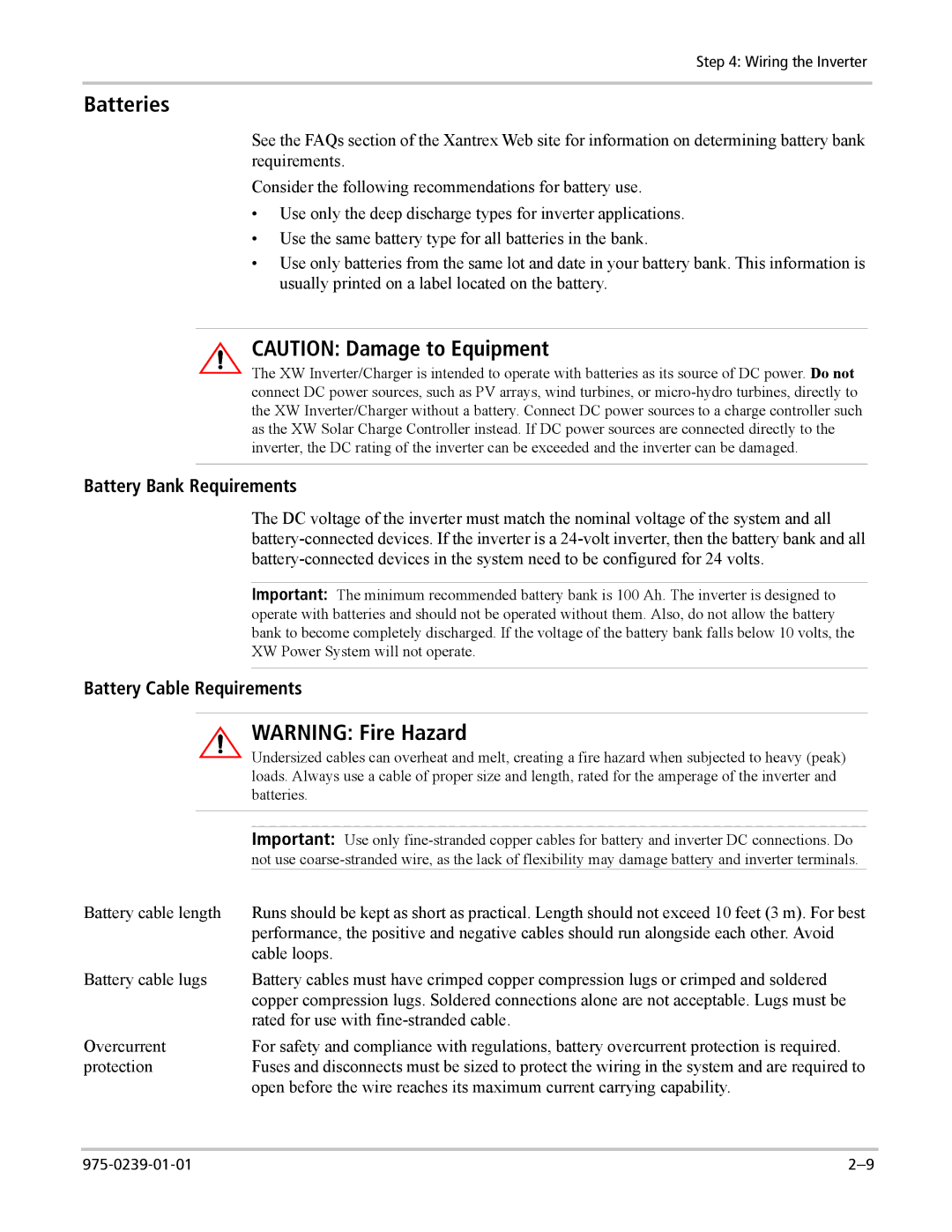
Step 4: Wiring the Inverter
Batteries
See the FAQs section of the Xantrex Web site for information on determining battery bank requirements.
Consider the following recommendations for battery use.
•Use only the deep discharge types for inverter applications.
•Use the same battery type for all batteries in the bank.
•Use only batteries from the same lot and date in your battery bank. This information is usually printed on a label located on the battery.
CAUTION: Damage to Equipment
The XW Inverter/Charger is intended to operate with batteries as its source of DC power. Do not connect DC power sources, such as PV arrays, wind turbines, or
Battery Bank Requirements
The DC voltage of the inverter must match the nominal voltage of the system and all
Important: The minimum recommended battery bank is 100 Ah. The inverter is designed to operate with batteries and should not be operated without them. Also, do not allow the battery bank to become completely discharged. If the voltage of the battery bank falls below 10 volts, the XW Power System will not operate.
Battery Cable Requirements
|
| WARNING: Fire Hazard |
|
| Undersized cables can overheat and melt, creating a fire hazard when subjected to heavy (peak) |
|
| loads. Always use a cable of proper size and length, rated for the amperage of the inverter and |
|
| batteries. |
|
|
|
|
|
|
|
| Important: Use only |
|
| not use |
Battery cable length | Runs should be kept as short as practical. Length should not exceed 10 feet (3 m). For best | |
|
| performance, the positive and negative cables should run alongside each other. Avoid |
|
| cable loops. |
Battery cable lugs | Battery cables must have crimped copper compression lugs or crimped and soldered | |
|
| copper compression lugs. Soldered connections alone are not acceptable. Lugs must be |
|
| rated for use with |
Overcurrent | For safety and compliance with regulations, battery overcurrent protection is required. | |
protection | Fuses and disconnects must be sized to protect the wiring in the system and are required to | |
|
| open before the wire reaches its maximum current carrying capability. |
